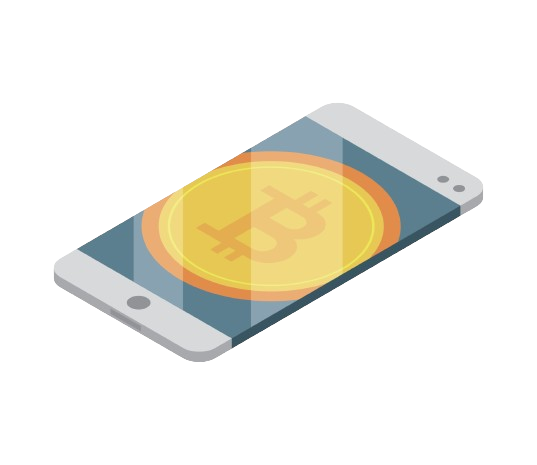
The gradual integration of Bitcoin into payment flows and financial applications has been steadily progressing since its inception in 2009. However, Bitcoin has yet to gain full traction for routine purchases and transactions in daily life. Looking ahead to 2024, it is instructive to hypothesize how the broader integration of Bitcoin could impact consumers, businesses, financial systems, and society as a whole.
By examining the vectors of Bitcoin integration along with associated benefits, risks, and adoption dynamics, we can envision how the future may unfold as Bitcoin becomes commonplace money. The path forward will involve overcoming obstacles, but the potential societal impact of Bitcoin’s use in everyday transactions could be profound.
Mainstream Consumer Adoption
For regular consumers, integrating Bitcoin for purchases and transfers will require intuitive interfaces that abstract technical complexities. Seamless mobile payments, improved QR solutions, straightforward tax tools, integrated accounting and clear regulations that inspire confidence in using Bitcoin will propel adoption.
As benefits like speed, global access, and bypassing middlemen kick in, consumers are more likely to switch a portion of spending and remittances to Bitcoin. User-friendly solutions must emerge to drive mainstream adoption.
Impact on Businesses

Businesses stand to benefit from reduced payment processing costs, automated reconciliation, access to new markets, and streamlined compliance by accepting Bitcoin. Improved point-of-sale systems, invoice generation, accountancy integration, and payment service providers tailored for Bitcoin will enable adoption.
Operational changes will be required, but cost and efficiency gains can make Bitcoin integration worthwhile. Small businesses may be early adopters, with larger chains coming later once infrastructure matures.
Financial Industry Disruption
Widespread use of Bitcoin could significantly disrupt banks, credit cards, and money transfer operators by reducing their transactional control and fees. These legacy intermediaries may eventually be forced to integrate with Bitcoin, in turn boosting its usefulness for financial transactions.
Incumbent institutions may first lobby against Bitcoin before adopting it. But its decentralized nature means Bitcoin cannot be stopped, only co-opted. The financial sector will be transformed by reducing middlemen and costs.
Economic Impacts
Measurable economic impacts should emerge by 2024 as Bitcoin disrupts and supplements fiat currencies. Expect to see reduced remittance costs, more small businesses operating, alternative economic ecosystems, demonetization of precious metals, and the emergence of a parallel Bitcoin economy.
Quantifying Bitcoin’s economic influence as it reaches into finance, banking, remittances, and monetary systems will become increasingly imperative.
Role of Micropayments

Micropayments made feasible by Bitcoin’s efficiency present opportunities for monetizing previously untapped markets and transactions. By 2024 expect micropayments for content, APIs, computational resources, data streams, and fractional asset ownership via Bitcoin’s Layer 2 systems.
Bitcoin enables frictionless monetization at minute transaction sizes and high volumes. Entire business models based on micropayments will arise.
Integration Challenges
Despite its promise, integrating Bitcoin for everyday transactions faces adoption challenges like UX obstacles, tax uncertainties, legal gray areas, complex regulations, and lingering mainstream skepticism. These challenges warrant measured expectations on the integration timeline.
Much depends on how proactively challenges are addressed through technological, regulatory, and educational means. Solutions must reduce friction for integration to gain traction by 2024.
Future Innovation Spurred
Perhaps less obvious, everyday Bitcoin usage will spur innovation across related sectors involving identity, privacy, security, data ownership, programmability, and governance. Unforeseen new business models, decentralized ecosystems, and novel financial primitives can flourish atop Bitcoin’s rails.
By integrating into regular transactions, Bitcoin creates a springboard for adjacent sectors like DeFi, decentralized data economies, self-sovereign digital identity systems, and digital asset marketplaces.
Geopolitical Impacts

Depending on the pace of adoption, Bitcoin’s global nature could impose geopolitical impacts by 2024. Sovereign currency competition, adoption rate divergences across nations, and USE curtailment are possible. But conversely, Bitcoin as neutral money enables fairer cross-border collaboration.
The reaction of governments to Bitcoin integration will shape the resulting geopolitical dynamics in the coming years. Smooth adoption aligns with Bitcoin’s open ethos.
Conclusion
By enabling direct peer-to-peer transactions, Bitcoin promises to streamline payments, reduce costs, and spur financial accessibility on a global scale. But realizing this potential hinges on user-centric solutions crossing the chasm to mainstream adoption.
The path forward will involve overcoming expected obstacles at the technological, regulatory, and societal levels. But with prudence and continued incremental progress, integrating your Bitcoin wallet holdings into everyday payments and financial transactions can deliver transformative utility by 2024 and beyond.